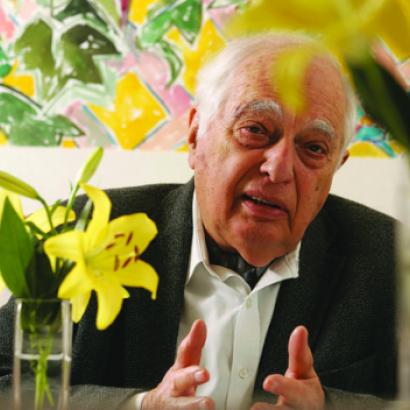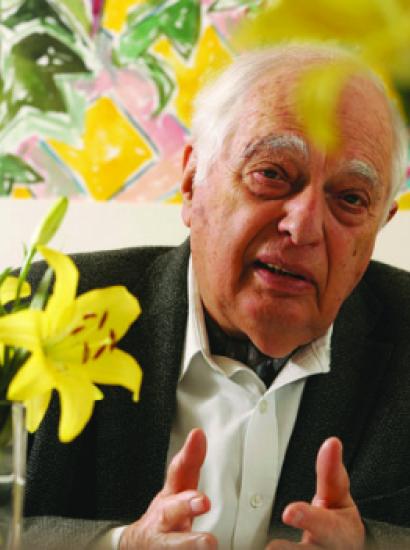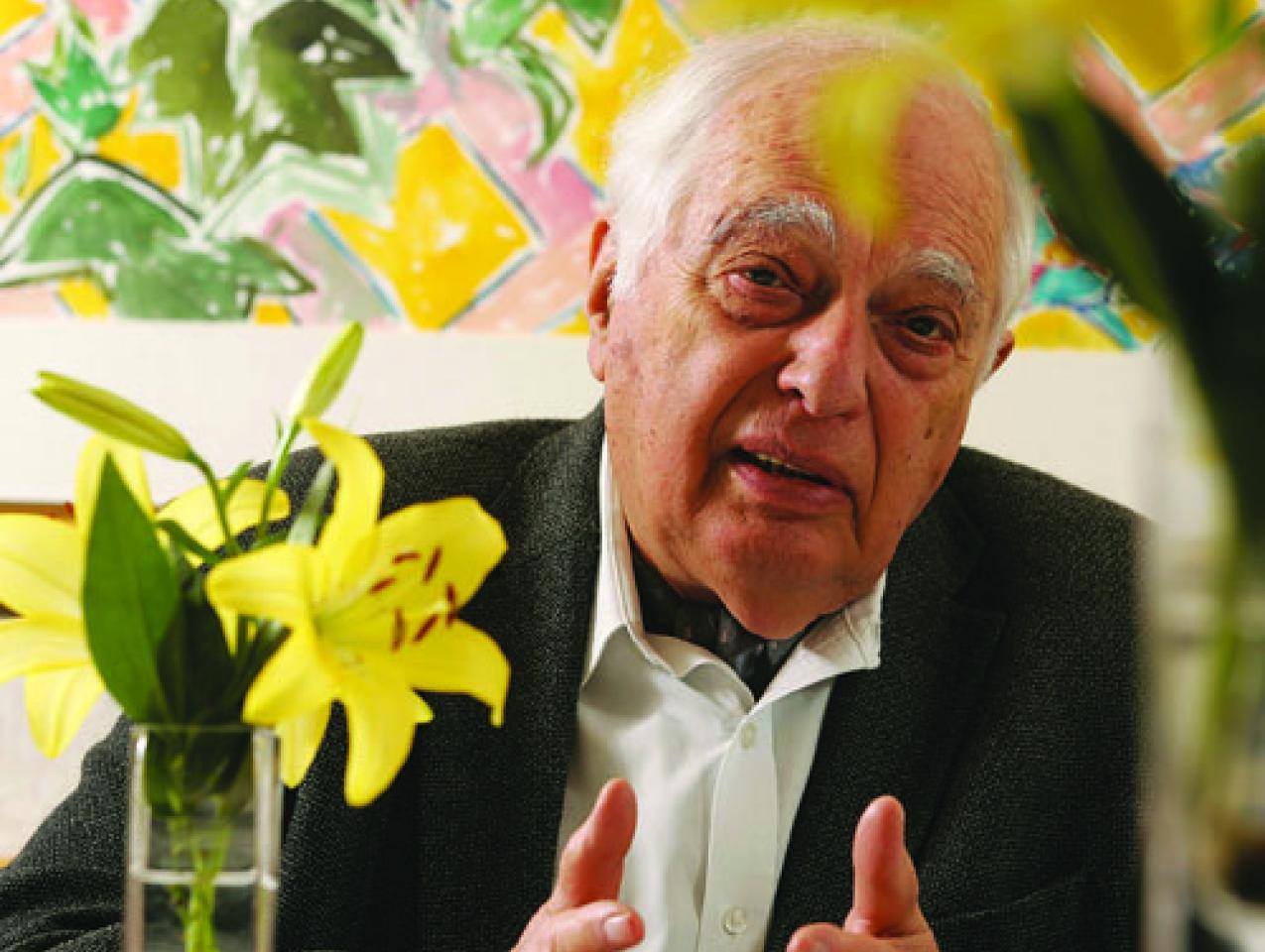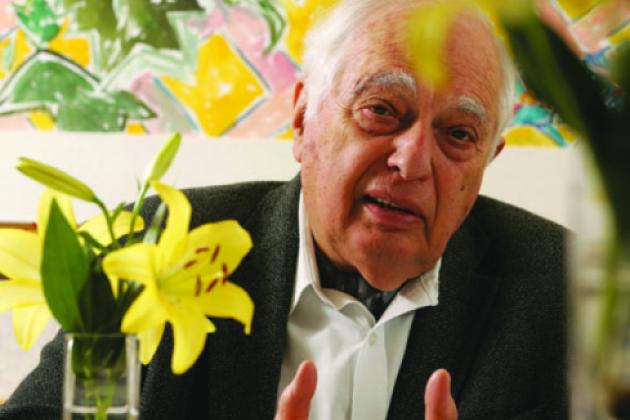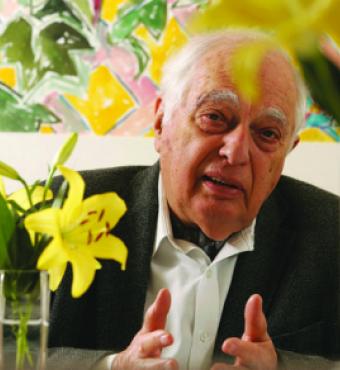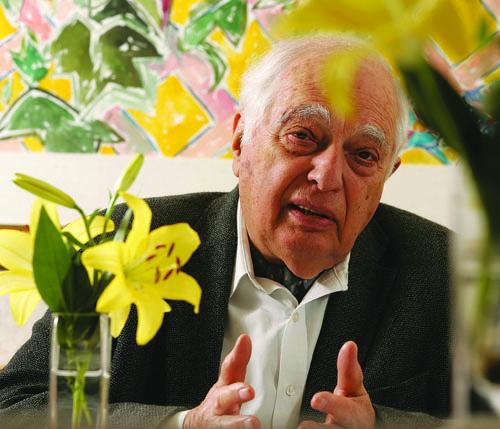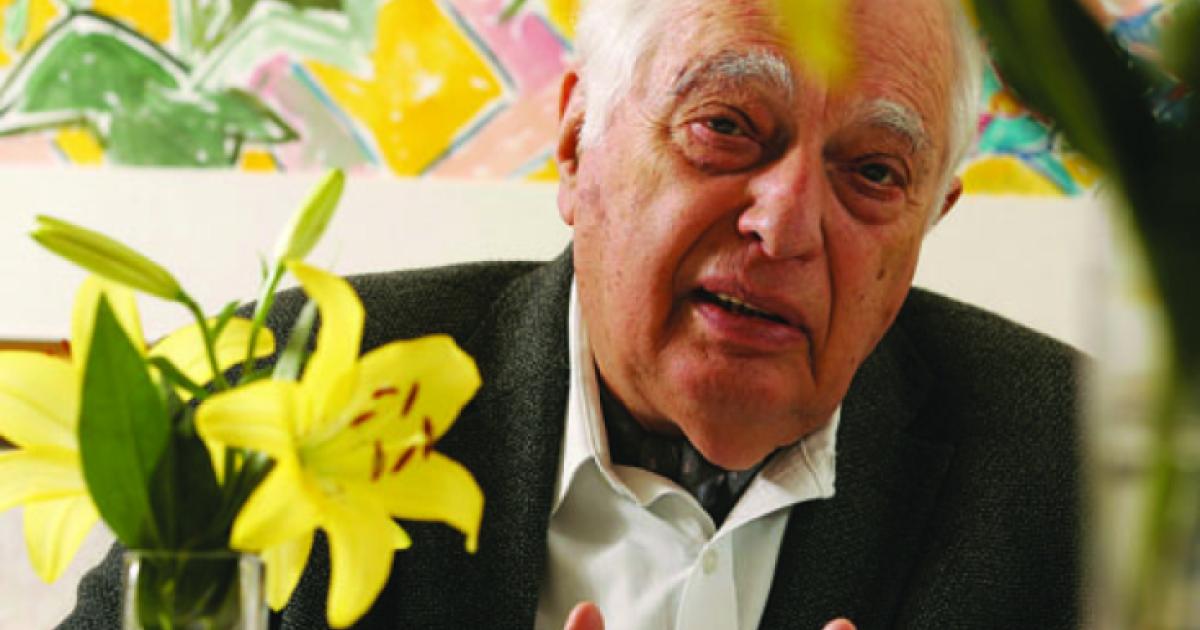- US
- Economic
- Military
- Contemporary
- World
- Security & Defense
- US Defense
- Terrorism
- International Affairs
- US Foreign Policy
- Law & Policy
- Civil Rights & Race
- History
According to a convention commonly agreed upon among historians, the modern history of the Middle East begins at the turn of the nineteenth century, when a French expeditionary force commanded by Napoleon invaded and conquered Egypt and stayed there until it was forced to leave by a Royal Navy squadron commanded by Admiral Horatio Nelson. This was not the first Western advance against the previously dominant power of Islam. But it was the first incursion from the West into the heartlands of the Islamic world. Bonaparte’s arrival and still more his departure demonstrated two important facts: that even a small Western force could conquer, occupy, and rule one of these heartlands without serious difficulty, and that only another Western force could get them out.
This began a period during which ultimate power over, and with it responsibility for, what happened in this region resided elsewhere; when the basic theme of international relations and of much else in the Middle East was shaped by the rivalries of non–Middle Eastern states. These rivalries went through several successive phases—interference, intervention, penetration, domination and, in the final phase, a sometimes reluctant, sometimes relieved departure. From time to time the actors in the drama changed and the script was modified, but until the final phase the basic pattern remained the same. In that final act of this drama, the two external superpowers whose rivalry dominated the Middle East were the Soviet Union and the United States. In their purposes and their methods, they were very different, both from their predecessors and from each other.
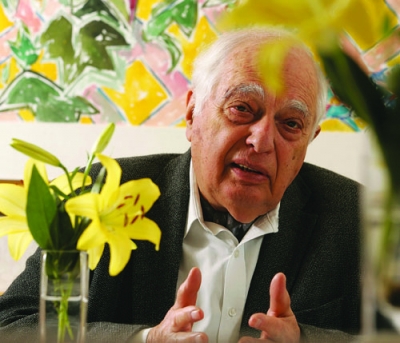
Princeton historian Bernard Lewis contends that sooner or later the Middle East will again become an object of interest to outside powers—and that it risks once again being a stake, rather than a player, in the great game of international politics.
Future historians of the region may well agree on a new convention—that the era in Middle Eastern history that was opened by Napoleon and Nelson was closed by George H. W. Bush and Mikhail Gorbachev. In the crisis of 1990–91 precipitated by Saddam Hussein’s invasion of Kuwait, neither of the two superpowers played the imperial role which tradition and popular expectation assigned to it; the one because it could not, the other because it would not.
Moscow, once so great a force in Middle Eastern affairs, could neither restrain nor rescue Saddam Hussein. Washington, having freed Kuwait from occupation and Saudi Arabia from the threat of invasion, had accomplished its war aims and unilaterally declared a cease-fire, leaving Saddam’s regime intact and permitting him, with only minor impediments, to crush his domestic opponents and in due course resume his policies.
As long as the Soviet Union existed, and as long as the Cold War was the main theme of foreign policy, American presence in the Middle East was part of a global strategy designed to cope with a global confrontation. With the ending of that confrontation, such a strategy became unnecessary. No discernible strategy has yet emerged to replace it.
HABITS OF DEPENDENCE
In the historical interlude between the fall of the Berlin Wall and the terror attacks in the United States on September 11, 2001, Russia was out of the game and likely to remain so for some years to come; America was reluctant to return. This meant that in many significant respects the situation reverted to what it was before. Outside powers had interests in the region, both strategic and economic; they could from time to time interfere in Middle Eastern affairs or even influence their course. But their role was no longer to be one of domination or decision.
Many in the Middle East had difficulty adjusting themselves to the new situation created by the departure of the imperial powers. For the first time in almost two hundred years, the rulers and to some extent the peoples of the Middle East were being forced to accept final responsibility for their own affairs, recognize their own mistakes, and accept the consequences. This was difficult to internalize, even to perceive, after so long a period. For the entire lifetimes of those who formulate and conduct policy at the present time and of their predecessors for many generations, the vital decisions had been made elsewhere, ultimate control lay elsewhere, and the principal task of statesmanship and diplomacy was as far as possible to avoid or reduce the dangers of this situation and to exploit such opportunities as it might from time to time offer. It is very difficult to forsake the habits not just of a lifetime but of a whole era of history. The difficulty is much greater when alien cultural, social, and economic pre-eminence continues and even increases, despite the ending of alien political and military domination.
Military and to a growing extent political intervention by the West had seemingly come to an end, but the impact of its science and culture, its technology, amenities, and institutions was, if anything, on the rise—here as in other parts of the non-Western world.
In these circumstances, it was natural that Middle Easterners should continue to assume—and proceed on the assumption—that real responsibility and decisions still lie elsewhere. In its crudest form, this belief leads to wild and strange conspiracy theories directed against those whom they regard as their enemies—Israel, and more generally the Jews, the United States, and the West. No theory is too absurd to be asserted or too preposterous to be widely and instantly believed. Even among more responsible statesmen and analysts, a similar belief in alien power, albeit in a less crude form, often seems to guide both analysis and policy. Some even go so far as to invite outside intervention, presumably in the belief that only outside powers have the capacity to make and enforce decisions. A case in point is the constant appeal to the United States to involve itself in the Arab-Israel conflict, oddly coupled with the repeated accusation of “American imperialism.” This particular charge reveals a misunderstanding of either America or imperialism or, more probably, both. When the Romans went to Britain two thousand years ago, or when the British went to India three hundred years ago, an “exit strategy” did not figure prominently among their concerns.
The strategic landscape was altered by the terror attack on American soil on September 11, 2001. In the aftermath of that terrible day, the American policy of benign neglect of the Middle East ended swiftly. American home security was at stake, and the United States was pulled into hitherto unimaginable obligations and dangers. In time, the thought would emerge that it was urgent to push for a wholesale reform in Arab and Islamic lands. Reform was not easy, but the risks of the status quo—repressive political orders, cultures of unreason and scapegoating—inspired this push with a new sense of both urgency and legitimacy.
This was not what those who had perpetrated the terror attacks had in mind. Their leader, the Saudi financier and jihadist Osama bin Laden, was sure of the weakness of American resolve. As he saw it, the Islamic fighters in Afghanistan had defeated and destroyed the mighty Soviet Union. Dealing with the United States would be much easier. It was a lesson bin Laden extracted from American responses to previous attacks; he expected more of the same. There would be fierce words and perhaps the United States would launch a missile or two to some remote places, but there would be little else in terms of retaliation. It was a natural error. Nothing in his background or his experience would enable him to understand that a major policy change could result from an election. As we now know, it was also a deadly error.
The assault of 9/11 was surely intended as the opening salvo of a war of terror that would continue until its objectives were obtained—that is, the eviction of the United States from the world of Islam and, most important, the overthrow of the Arab regimes seen by the West as friendly and by Al-Qaeda and many of their own subjects as renegades from Islam and puppets of America. But rather than head for the exits, America was to dig in for a deeper presence in Arab and Islamic lands. If this was imperialism, it was imperialism of a defensive kind.
Those who accuse the West and more particularly the United States of imperialist designs on the Middle East are tilting against shadows from the past. There is, however, another charge with more substance—that of cultural penetration. American culture differs from all its predecessors in two important respects. First, it is independent of political control and extends far beyond the areas of American political dominance or even influence, as for example in Islamic Iran or communist China. Second, it is in a profound sense popular. Previous cultural expansions were limited to political and intellectual elites. American popular culture appeals to every element of the population and especially to the young. It also brings a special message to elements disempowered in the traditional order, notably women. Not surprising, therefore, it is perceived as a mortal threat both by the defenders of tradition and by the exponents of fundamentalist ideologies. How that threat is perceived is clear from the Ayatollah Khomeini’s repeated characterization of the United States as “the Great Satan.” No intelligence service is needed to interpret this epithet—just a copy of the Quran. The last verses, the best known along with the first, talk about Satan, describing him as “the insidious tempter who whispers in the hearts of men.”
The challenge of Western culture has been a major theme in Middle Eastern debate for almost two centuries. American popular culture pre-sents this challenge in its most recent and also its most pervasive form. Middle Eastern rulers, leaders, and thinkers have offered and will no doubt continue to offer various responses to this challenge—imitate, adopt, adapt, and absorb, or complain, denounce, and reject.
RIVAL IDEOLOGIES
Today, increasing numbers of Middle Easterners, disillusioned with past ideals and—in many countries—alienated from their present rulers, are turning their thoughts or their loyalties to one or other of two ideologies: liberal democracy and Islamic fundamentalism. Each offers a reasoned diagnosis of the ills of the region and a prescription for its cure.
In this struggle, fundamentalism disposes of several advantages. It uses language that is familiar and intelligible, appealing to the vast mass of the population in a Muslim country. At a time of economic deprivation, social dislocation, and political oppression, many are ready to believe that these evils are a result of alien and infidel machinations and that the remedy is a return to the original, authentic way of Islam. The fundamentalists also have an immense advantage over other opposition groups in that the mosques and their personnel provide them with a network for meeting and communication that even the most tyrannical governments cannot suppress or entirely control. Indeed, tyrannical regimes help their fundamentalist opponents by eliminating competing oppositions.
The exponents of democracy, in contrast, offer a program and a language that are unfamiliar and, for many, unintelligible. They have the further disadvantage that the name of democracy and those of the parties and parliaments through which it operates have been tarnished in the eyes of many Muslims by the corrupt and inept regimes that used these names in the recent past. In contrast, appeals in the name of God and the Prophet to cleanse society by restoring his holy law have a force and immediacy unattainable by democrats whose arguments, examples, and even vocabulary are recognizably alien.
But things are changing. In countries where fundamentalists are a powerful force and still more in those where they rule, Muslims are learning to distinguish between Islam as an ethical religion and way of life and fundamentalism as a ruthless political ideology. In countries where they have opposed the regime, such as Egypt and Algeria, fundamentalist terrorists have shown a callous brutality that shocks and repels ordinary, decent believers. In countries where they rule, such as Iran and at times Sudan, they are, perhaps inevitably, disappointing the high hopes they evoked. The regime of the mullahs in Iran is not noticeably less corrupt than the one it replaced. It is more efficiently and pervasively repressive, and increasing numbers of Iranians, in desperation, are turning against Islamic fundamentalism and sometimes even against Islam itself. Many good Muslims in Iran and elsewhere see in this a mortal danger to their faith and civilization, and there is a growing movement that challenges Islamic fundamentalism, not in the name of secularism, but in the name of Islam. The most serious challenge to the Iranian regime, for instance, may well come from within its own ranks.
The fundamentalist regimes are also failing by the more palpable test of performance. In Iran, the effects of fundamentalist rule will for a while be palliated by the availability of money from oil and the remarkably skillful use made of this resource in dealing with foreign governments and business corporations. But it is only a palliative, and of limited duration. Elsewhere, where no such palliative exists, the most visible effects of fundamentalist rule are poverty, tyranny, and unending internal warfare. The programs and activities of fundamentalist oppositions in other countries promise nothing better. It is becoming increasingly clear that whatever political and propaganda successes they may achieve, fundamentalist movements—and governments—have no real understanding and therefore no solutions for the pressing problems of modern society.
WHAT WILL BRING THEM TOGETHER?
In the struggle between democracy and fundamentalism for power in Muslim lands, the democrats are obliged to allow the fundamentalists equal opportunity to conduct propaganda and to contend for power. If they fail in this duty, they are violating the very essence of their own democratic creed. Paradoxically, it is the Western concern for democratic freedom, even at the cost of Western values and of freedom itself, that sometimes prevents the Muslim secularists from dealing with this problem in the traditional way. The fundamentalists are under no such disability. For them, winning an election is one of several possible roads to power—and it is a one-way road on which there is no turning back.
The strength of the democrats, and the corresponding weakness of the fundamentalists, is that the former have a program of development and betterment, while the latter offer only a return to a mythologized past. The problem is that the weaknesses of the democrats are immediate and obvious; their strengths are long-term and, for many, obscure.
Some speak of a possible compromise between the rival extremes—a type of representative democracy not formally secular, in which a moderate but not fundamentalist Islam might play the role of the established churches in Britain and Scandinavia or of the Christian democratic parties in continental Europe. There is little sign of any such compromise as yet, and at the present it seems unlikely. But the idea of a combination of freedom and faith in which neither one excludes the other has achieved some results among Christians and Jews and may yet provide a workable solution for the problems of political Islam.
In an era when pan-Arab nationalism and the imperialisms against which it was directed have faded into an ever more remote past, the only common Arab cause remains the struggle against Israel. Only Israel’s actions can from time to time revive the flagging fortunes of pan-Arabism. In fact, some Israeli actions have already done more for the pan-Arab cause than any Arab leader since Gamal Abdel Nasser. Similarly, Israeli extremism, both nationalist and religious, is nourished and encouraged by the tendency of some Palestinian organizations to resort to bloody terrorism every time there is a hitch—or a success—in the negotiations. The peace process may be halted, deflected, or even reversed by acts of folly or fanaticism or the deadly combination of the two. Even the inexperience of new leaders may cause grave damage. These dangers may come from either side and may provoke a comparable response. Even so, as long as the international and regional circumstances that brought the parties to the negotiating table remain in effect, the peace process will continue, surviving both setbacks and crises.
In the long run, the future of Arab-Israel relations will be determined by the outcome of the overarching regional struggle between democratic and fundamentalist ideologies, by the choices made by the peoples and their leaders. The triumph of democracy would eventually lead to a genuine and not merely formal peace. The triumph of militant fundamentalism on either side can result only in continuous and increasingly destructive struggle.
BETTER LIVES AND BETTER GOVERNANCE
The choice between democracy and fundamentalism will also be profoundly influenced by the pace, or lack, of economic betterment. Democracy and tolerance come easier to the affluent than to the indigent. There is a related crossroads: between outward and inward modernization. Outward modernization means accepting the devices, the amenities, and the conveniences provided by Western science and industry while rejecting what are seen as pernicious Western values. All too often, this means also rejecting the science that produced these devices and amenities and the way of life that made that science possible. One might put it this way: outward modernization means buying and firing a gun; inward modernization means learning to manufacture and ultimately design one. This is not likely to happen in countries—like some in the region—where science is taught from fifty-year-old textbooks.
Catching up with the modern world means more than borrowing or buying modern technology. It means becoming part of the process by which that technology is created—that is, undergoing the intellectual revolution, the economic, social, and eventually political transformation that precedes, accompanies, and follows technological change. In this respect, the Middle East still lags far behind other more recent recruits to modernity such as South Korea, Taiwan, and Singapore.
The Arab-Israeli conflict, in one way or another, will profoundly influence the development of the region as a whole. This could be positive or negative. If the struggle becomes more bitter and acquires the enduring quality of some of the other, more ancient quarrels of the region, it will have a corrosive effect for Israelis and Arabs alike, diverting energies and resources from creative to destructive purposes and preventing the progress of the region toward a new age of advanced technology and political freedom.
Peace, in contrast, would help and speed that progress. If there is peace, then the peoples of the Middle East, working together, might achieve their own breakthrough as other regions have already done and resume the creative role they once played in the history of civilization. One way that this might happen was described in a remarkably prophetic article titled “The Changing East,” by T. E. Lawrence—Lawrence of Arabia—published in 1920:
The Middle East’s window of opportunity will not remain open forever. Even when its oil and its transit routes, so crucial in the past, are outdated by modern technology and communications, the Middle East will still be important—as the junction of three continents, the center of three religions, a strategic asset or danger to be coveted or feared. Sooner or later it will again become an object of interest to outside powers—old powers reviving, new powers emerging. If it continues on its present course, the region, lacking the capacities of India and China on the one side or the technology of Europe and America on the other, will once again be a stake rather than a player in the great game of international politics.
The study of Islamic history and of the vast and rich Islamic political literature encourages the belief that it may well be possible to develop democratic institutions—not necessarily according to our Western definition of that much-misused term but according to one deriving from the Middle East’s own history and culture and ensuring, in their way, limited government under law, consultation, and openness in a civilized and humane society. There is enough in the traditional culture of Islam, on the one hand, and the modern experience of the Muslim peoples, on the other, to provide the basis for an advance toward freedom in the true sense of the word.
But if freedom fails and terror triumphs, the peoples of Islam will be the first and greatest victims. They will not be alone, and many others will suffer with them.








